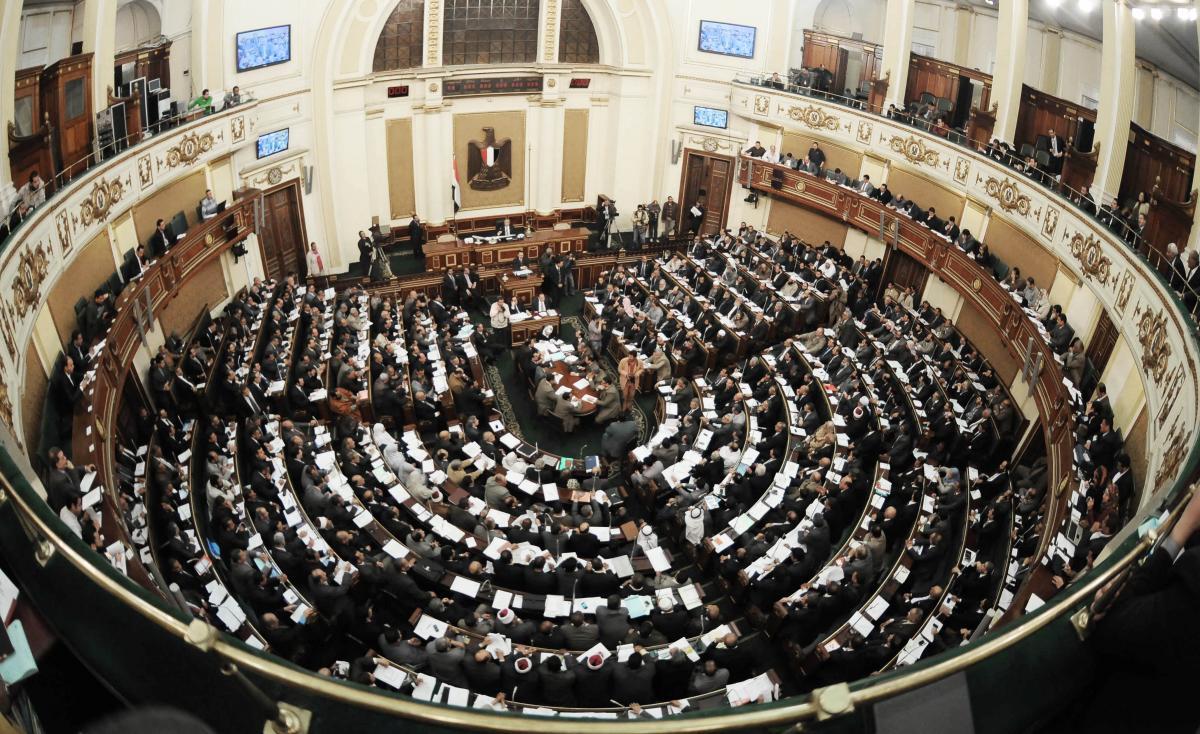Egyptian Parliament approved a decree issued by President Abdel Fattah el-Sisi to extend the state of emergency in the country following the deadly clashes between the police and terrorist groups in desert of Giza resulting in the death of 16 officers and policemen and injury and death of 15 armed men.
In addition, Giza criminal court sentenced 11 people to death in the case known as the “Giza terrorist cell”.
Sisi chaired a top security meeting on Sunday attended by Minister of Defense Sedki Sobhy, Minister of Interior Affairs Magdy Abdul Ghaffar, head of intelligence Khalid Fawzi, and a number of Defense and Interior Ministries’ officials.
Presidency spokesperson Alaa Youssef stated that the President reiterated during the meeting that Egypt will continue to counter terrorism and those financing and sponsoring it. He called for further enhancing efforts to persecute terrorist elements that took part in the recent terrorist incident in al-Wahat. Sisi also called for intensifying security and military efforts to ensure the country’s borders.
The spokesperson stated that the President was briefed on reports of the clashes between security forces and a number of terrorist elements. He reiterated that war on terrorism is different than regular wars and the armed forces and police succeeded over the past few years in reestablishing security and stability.
Prime Minister Sherif Ismail recited the government’s statement announcing that the state of emergency is a crucial procedure to maintain security and stability and confront terrorism that is hindering the development of democracies.
“The declaration of the state of emergency at the time being is a necessary procedure, just like the case in established democratic countries that viewed the state of emergency as a necessity to preserve their stability and security,” Ismail stated.
This is the third time that Egypt announces a state of emergency.
A state of emergency was first declared in April following suicide bombings in churches in Alexandria and Tanta on Palm Sunday that killed 47 worshippers.
The state was extended for three more months in July and after the previous three-month state of emergency expired, Sisi issued the presidential decree on October 12.
Ismail vowed before parliament that the government would not resort to exceptional measures unless required to confront terrorism, and that emergency law would not be used to curtail the rights of citizens or their public freedoms.
According to Article 154 of the Egyptian constitution, a state of emergency cannot exceed six months from its date of declaration. It must also be approved by parliament within seven days.
“I stand before you today in the painful and tough circumstances the country witnessed in the past few days, where several policemen sacrificed their lives confronting terrorist elements who have no religion except blood-shedding,” Ismail said referring to the deadly shootout.
Head of the Media, Culture and Antiquities Committee Osama Heikal said that the days following the Wahat incident were difficult, adding that Egypt was engaged in a war with elements who intend on breaking the nation’s morale.
“We are fighting an enemy from within, and this enemy bets that the longer the battle against terrorism, the better the chance that we will lose our nerve and morale and become despondent,” Heikal said, announcing his approval of the new state of emergency.
Head of the Arab Affairs Committee Saad al-Gamal said that Egypt had successfully terminated terrorism during the eighties and will be able to do end current terrorist threats.
Chief of Staff of the Egyptian Armed Forces, Lieutenant General Mahmoud Hegazy, left Cairo on Thursday to head to Washington for the Conference of Chiefs of Staff of States, to partake in a discussion on the war on terrorism.
Armed Forces spokesperson stated that Hegazy headed to the US upon an official invitation from the Chairman of the Joint Chiefs of Staff.
The conference focuses on coordinating regional and international efforts to eliminate terrorism and to confront threats and challenges aimed at security and stability especially in the Middle East.
Hegazy will hold meetings with senior US military officials to boost military cooperation between the two countries.
In related news, Giza criminal court sentenced 11 people, including four people in absentia, to death in the trial known as the “Giza terrorist cell”.
The court also sentenced 14 others to 25 years in jail and a juvenile to 10 years in prison.
The case dates back to 2014 and the defendants are accused of joining an illegal group, attacking personal freedoms, manufacturing explosive materials, and attempted murder of two police officers, as well as destroying a police vehicle.








































admin in: How the Muslim Brotherhood betrayed Saudi Arabia?
Great article with insight ...
https://www.viagrapascherfr.com/achat-sildenafil-pfizer-tarif/ in: Cross-region cooperation between anti-terrorism agencies needed
Hello there, just became aware of your blog through Google, and found ...